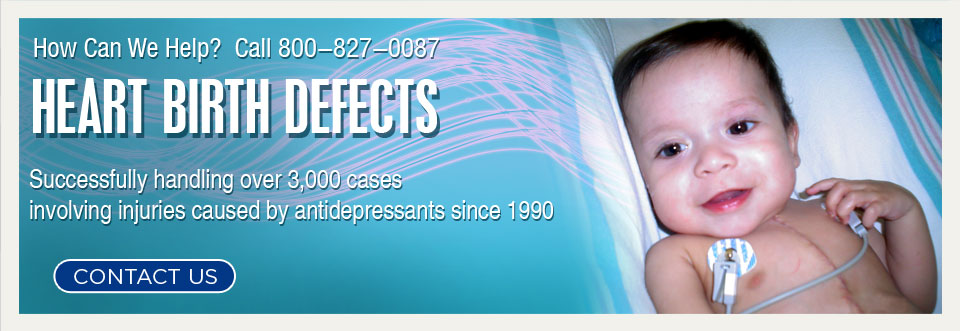Heart Birth Defect Studies
British Medical Journal
Selective serotonin reuptake inhibitors in pregnancy and congenital malformations: population based cohort study
A population-based cohort study (an observational study of subjects with a certain condition and/or receiving the same treatment compared with a group that is not) published in the British Medical Journal in 2009 found an association between the use of SSRI antidepressants and septal heart defects. Researchers found that pregnant women prescribed certain SSRIs, particularly Zoloft and Celexa, during pregnancy gave birth to children with an “increased prevalence of septal heart defects.”
New England Journal of Medicine
First-Trimester Use of Selective Serotonin-Reuptake Inhibitors and the Risk of Birth Defects
In 2007, a study was published in the New England Journal of Medicine that linked the use of certain antidepressants with a higher risk of numerous birth defects. Among the birth defects associated with the use of antidepressants during pregnancy were septal heart defects and right ventricular outflow tract obstruction (RVOTO) of the heart. According to researchers, mothers who took the SSRI antidepressant Zoloft while pregnant doubled the risk of having a baby with septal heart defects.
Clinical Therapeutics
A meta-analysis consideration of potential links between certain antidepressants
and congenital malformations
A meta-analysis published in Clinical Therapeutics on May of 2007 found that taking certain antidepressants during the first-trimester of pregnancy was associated with a “significant increase in the risk for cardiac malformation.” The study also found that “infants of women who received SSRIs underwent approximately twice as many echocardiograms in the first year of life compared with children of women who used nothing.” |

